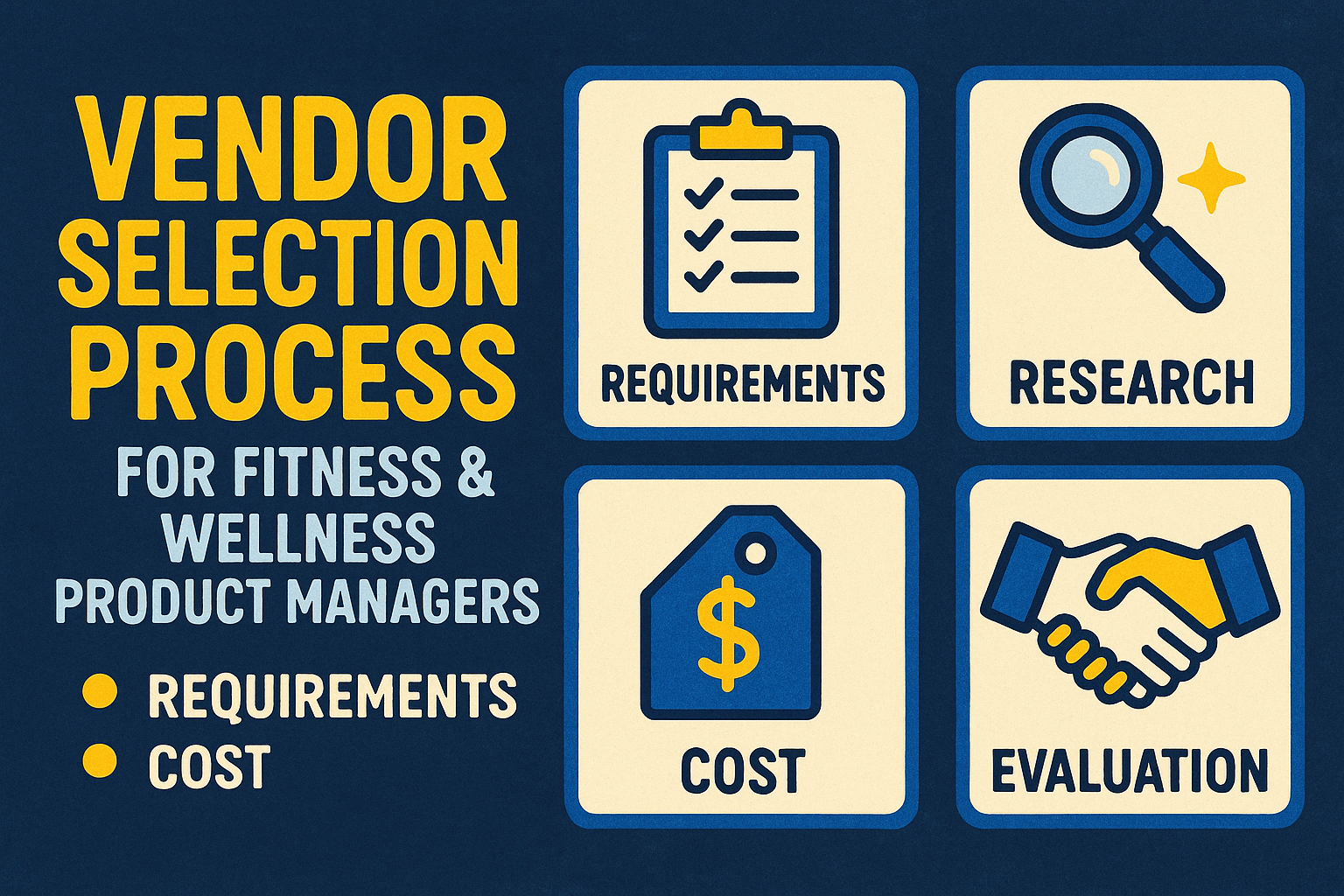Schedule a Demo
In my work with operations managers in the fitness and wellness sector, I've seen how critical it is for product managers to select the right vendors. The process involves a meticulous approach to ensure that the chosen partners align with the company's goals and values. From personal experience, I've observed that product managers in this industry often start by identifying their specific needs, whether it's software solutions for tracking user progress, or wellness products that resonate with their brand's ethos.
The journey begins with a thorough market research phase. Product managers dive into industry reports, attend trade shows like the Global Wellness Summit, and engage with online forums such as the Fitness Industry Association. They're looking for vendors who not only offer cutting-edge solutions but also demonstrate a deep understanding of the fitness and wellness market's unique challenges and opportunities.
Technology plays a pivotal role in how product managers search for and evaluate vendors. Platforms like Capterra and G2 are often used to compare software solutions based on user reviews, features, and pricing. Additionally, CRM systems help track interactions with potential vendors, ensuring no detail is overlooked. Based on available research, individual results may vary, but the integration of technology streamlines the selection process and provides a data-driven approach to decision-making.
I've worked with product managers who also utilize AI-driven tools to analyze market trends and vendor performance. These tools offer insights into which vendors are gaining traction and which ones might be on the decline, helping managers make informed decisions.
Networking is another crucial element in the vendor selection process. Product managers frequently attend industry events, not just for market research, but to forge relationships with potential vendors. I recall attending a wellness conference where a product manager I was working with struck up a conversation with a vendor, leading to a partnership that revolutionized their product line.
These relationships are often nurtured through follow-up meetings, emails, and even social media interactions. The personal touch can make all the difference in understanding a vendor's culture and commitment to customer service.
Once a list of potential vendors is narrowed down, product managers move to the proposal evaluation stage. This involves a detailed analysis of each vendor's proposal, looking at factors such as cost, scalability, integration capabilities, and customer support. I've seen product managers use scorecards to objectively compare proposals, ensuring that decisions are based on a comprehensive evaluation rather than gut feeling.
It's not just about the numbers; the qualitative aspects are equally important. Product managers assess the vendor's vision, their track record in the fitness and wellness industry, and their ability to innovate. This holistic approach ensures that the selected vendor can grow with the company and adapt to future needs.
Pilot projects are a common strategy used by product managers to test vendor solutions before full-scale implementation. These projects allow for real-world testing and feedback, which is invaluable in making the final decision. From my experience, pilots help identify any potential issues that might not be apparent in a vendor's proposal or demo.
During a recent project, a fitness app company I was advising conducted a pilot with a new wellness tracking software. The pilot revealed critical insights into user engagement and system integration, which ultimately led to a successful long-term partnership.
The final step in the vendor selection process is the negotiation and contract phase. Product managers must ensure that all terms are clear, and that the agreement aligns with the company's strategic objectives. I've seen negotiations that focus not just on price, but on service level agreements, data security, and long-term partnership terms.
Once the contract is signed, the real work begins. Product managers need to manage the onboarding process, ensuring a smooth transition and integration of the vendor's solution into their existing systems. This phase requires ongoing communication and collaboration to achieve the desired outcomes.
Selecting the right vendor is a complex but rewarding process for product managers in the fitness and wellness industry. It requires a blend of market research, technology, networking, and strategic evaluation. By following this comprehensive approach, product managers can find partners that not only meet their current needs but also support their company's growth and innovation in the dynamic fitness and wellness market.
